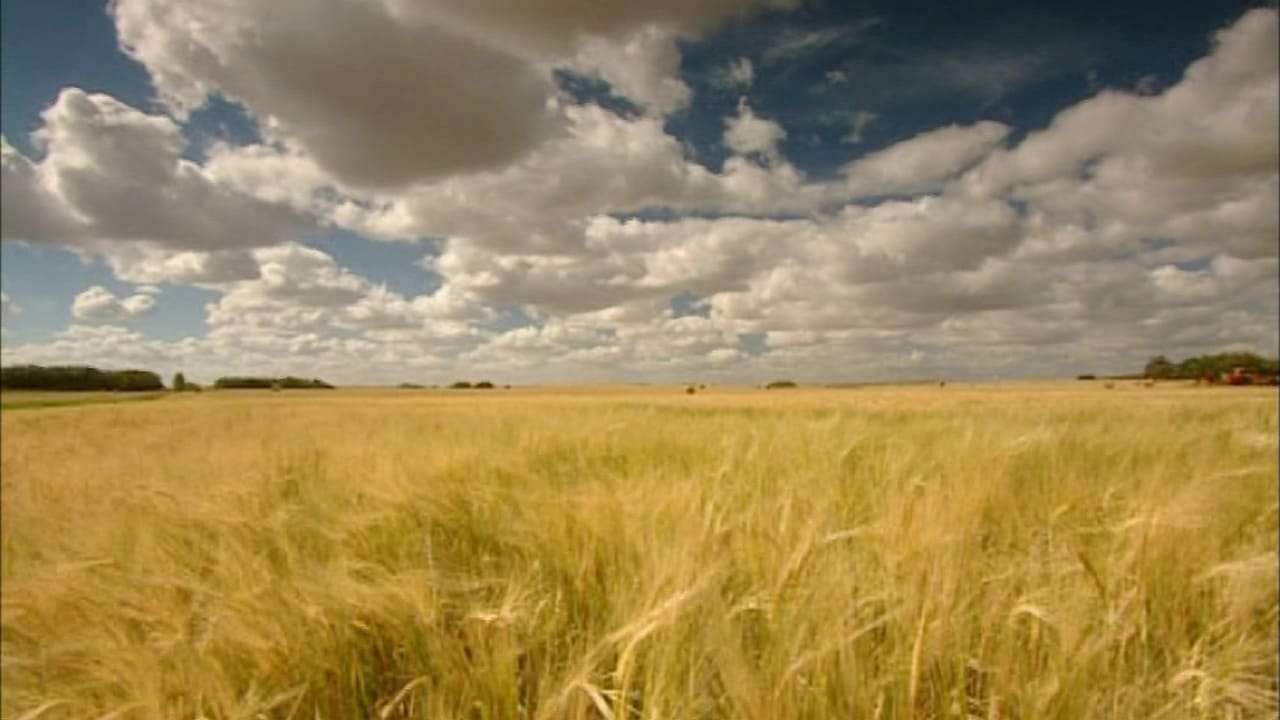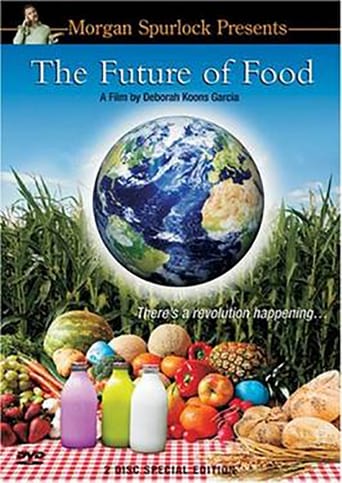

The Future Of Food, an 88 minute long documentary, released in 2004, and directed by Deborah Koons Garcia, wife of the late founder of the 1960s rock band, The Grateful Dead, Jerry Garcia, is a film that rehashes many of the same points made in the earlier films, yet also goes a bit more deeply, penetrating into the web of how Monsanto, and other agribusiness giants weave a web of control and oligopoly that reverberates up and down the food chain, and puts the squeeze on the small, family farmer, even waging a war on them. The film shows how a Canadian farmer named Percy Schmeiser stood up to Monsanto and was ruined by a corrupt Canadian judiciary (although, if one follows the link provided, it seems that Schmeiser actually got the upper hand in 2008!).The film also details how these corporate thugs, mostly in the petrochemical and insecticide and herbicide industries, have cornered the market in the seed industry, and how ridiculous patent laws have allowed the first company with the idea to patent natural plants to do so, and how they have tried to standardize patent laws worldwide so that an American or French company could somehow dictate the agricultural and food policies of developing and Third World nations, in a sort of corporate colonialism that is bound to engender not only health, but political, problems in the future. The destruction of native cultures is just part of the problem, for the larger issue is the absurdity of patenting life itself, and stating that Crop X belongs to a foreign company, thus allowing foreign interests to lay economic and legal rights to products they had no part in cultivating, while also allowing these unevolved and monoculture crops great range and susceptibility to droughts and pests they cannot fight off, for even Monsanto's Round Up Ready soy beans are showing their limitations as a food source, whereas Mexico's natal and diverse forms of corn, which occasionally remix with wild and progenitor breeds prove hardier and more resistant than the genetically modified corn from north of the border.The film also brings to light what is called the Terminator Gene that has been developed in certain crops, which was designed so that limits on crops could more easily maintain crop process. The utter folly of this, were these strains to become dominant, is that famine would be rampant, and the very development of such a gene, alone, should be enough to convince any legislative body of the folly of allowing corporate empty suits to have any say in the vital national security issue of feeding the masses. All in all, The Future Of Food is likely the best and most information rich of these documentaries in conveying the scope and depth of the issues surrounding America's insane agricultural process.
... View MoreI first became aware of things not being quite right when I developed an allergic reaction to various products. So now I started looking at the labels of all the products I consumed - from soap to toothpaste to food. What I discovered was that the American food diet is a slow death sentence. E.g. after brushing my teeth, my stomach would ache and I did not know why. I finally read the label of my toothpaste for the first time in my life. It warns you that if you swallow too much of it, you should call the local Poison Control Center. I was slowly poisoning myself, and it is sold over the counter - it contains bleach! I switched to Tom's of Maine and no longer have those stomach problems. I then saw the movie "Supersize Me." It confirms that the American "fast-food" food industry is a slow death sentence. Then I saw "King Corn" and it confirms that the corn being grown in the US is inedible - unless it gets "processed" at a plant! Now comes "The Future of Food" and ... I am depressed. I apologize to every single organic food grower, and consumer for ever thinking you guys were "full of it." The irony is of course that I was the one full of "it." Please let others know what is going on - tell everyone you know to see this movie ... and BUY ORGANIC! That's my plan. If we stop buying their sewage then they lose profit. If they lose profit, THEN we get their attention. may God richly bless you and yours, in Jesus' name, amen.
... View MoreThis movie is very one sided so be prepared to think for yourself but it's not a bad thing. Millions of dollars are being spent daily to tell you the other side. At least hear this side out. If you want to believe all the hype about genetically altered foods it's your choice but don't make it only hearing what big business and elected officials paid by special interest groups have to say. Food for thought. Why would a company go to so much trouble creating genetically altered foods to feed the poor or the starving. They only create them to make money. Starving people do not have money. Please watch this movie and make up your own minds I doubt anyone would wish they had never seen this movie but many will wish they had. I know that Monsanto hopes you skip it.
... View More"The Future of Food" is a documentary that deals with the history of the agricultural industry and the development of genetically engineered food. It delves deep into the topics of patenting these genetically engineered creations by huge corporations and how the FDA's and EPA's regulations aren't strict enough and how food that has been genetically engineered in the United States does not have to be labeled. This is all valuable information.Then the movie spends the rest of the time bashing a corporation "Monsanto" for destroying the lives of all these farmers and potentially they will bring the end of the world. Phrases like "if 60 genetically altered salmon are entered into the mainstream population, the salmon species COULD be extinct within 40 generations," are all fine and good, but there's no flip side of the coin. There's no one from Monsanto backing claims. There's no one saying, "Genetically engineered salmon could increase population growth." It seems that many documentaries recently have become witch hunts against multinational corporations, which I think are great if both sides are presented. Maybe Monsanto didn't want to talk to the filmmaker, but if that was the case, let the viewer know that at least they tried to show both sides of the story. Show the filmmaker calling or have a graphic saying "They declined comment." "The future of Food" is a great idea, with a lot of great information, but it ultimately fails because it only shows 50% of the story, hence my 5 out of 10 rating.
... View More